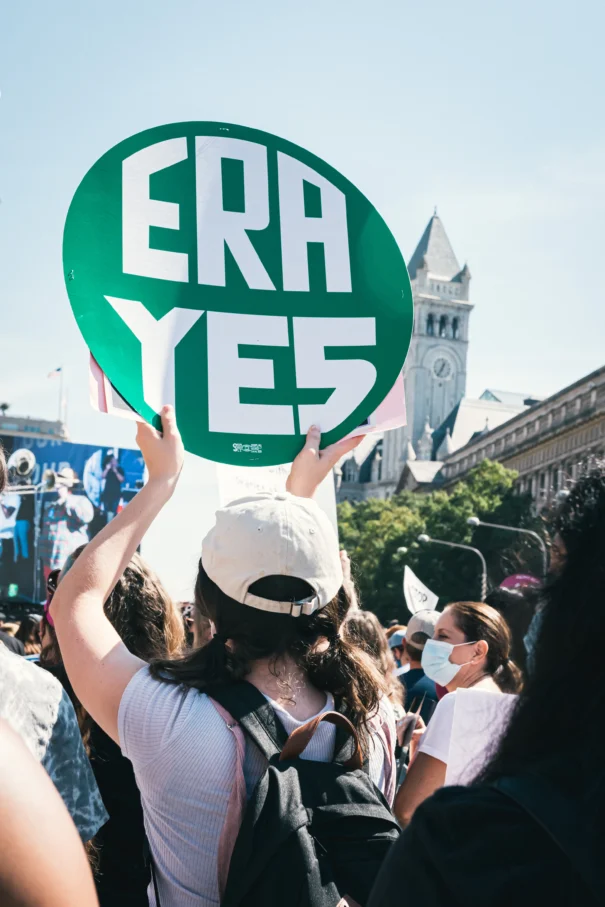
Photo by Gayatri Malhotra
New York stands at a crossroads of history as election signs sprout like late-blooming flowers. This year’s ballot holds more than names; it carries the weight of generations of struggle, hope, and relentless pursuit of equality. New York Proposition 1 isn’t just another line item—it’s the latest chapter in a story that began long before we were born.
Imagine a world where women couldn’t vote, own property, or control their bodies. Imagine the courage to stand up and say, “No more.” That’s where our story begins.
In 1923, three years after women won the right to vote, Alice Paul drafted the Equal Rights Amendment (ERA). Its original words were simple yet revolutionary: “Men and women shall have equal rights throughout the United States and every place subject to its jurisdiction.” For Paul and her sisters-in-arms, this wasn’t just about legal equality – it was about fundamentally reshaping a society built on patriarchal foundations.
Fast-forward to 1972. The ERA passed Congress, riding a wave of second-wave feminist energy. At the same time, feminists were pushing for state ERAs across the country. There are currently 22 states with ERAs included in their state constitutions and 6 states with limited gender equality provisions.
This brings us to New York’s 2024 ballot. Proposition 1 stands as a testament to this legacy of persistence. The proposal amends Article 1, Section 11 of the New York Constitution — the Equal Protection Clause. Section 11 currently protects against unequal treatment based on race, color, creed, and religion. The amendment will expand the protections to gender expression, pregnancy, pregnancy outcomes, reproductive healthcare, and autonomy. This is an important step toward protecting reproductive rights and access in New York.
In the tradition of intersectional feminism, Proposition 1 recognizes that oppression doesn’t exist in a vacuum. By including protections for ethnicity, national origin, age, and disability alongside gender and sexuality, it acknowledges the complex identities that shape our experiences. And yes, it talks about abortion. In a post-Roe v. Wade world, where the right to bodily autonomy can no longer be taken for granted, Proposition 1 stands as a bulwark. In no uncertain terms, it says that reproductive healthcare and autonomy are fundamental rights, as essential as clean air and water.
Of course, some oppose Proposition 1. Their arguments might sound new—judicial overreach, state government overstepping its bounds—but listen closely, and you’ll hear echoes of the past. These are the same voices that said women didn’t need the vote, that the ERA would destroy society, and that reproductive rights were a step too far.
But we’ve heard these voices before and moved forward despite them.
As New Yorkers step into voting booths this November, they’re not just casting a ballot. They’re taking part in a story that stretches back decades, with women and their allies fighting for a more just and equal world.
Proposition 1 is a significant step toward equality. Most of all, it’s a reminder that the fight isn’t over. Each generation has the opportunity—and the responsibility—to push the boundaries of equality a little further. As you vote, remember you’re not just deciding on a law. You’re deciding what kind of future you want to build—a future where equality isn’t just a dream but a constitutional right. a future that honors the struggles of the past while boldly pushing for a more just tomorrow.